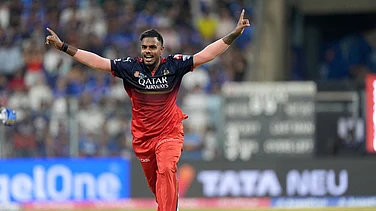Cricket West Indies (CWI) is reeling after the national Test team suffered a humiliating series clean sweep against Australia, capped by a catastrophic collapse for just 27 runs – the second-lowest score in Test history.
In response to what President Dr. Kishore Shallow described as "deeply disappointing" performances, the CWI has called an emergency meeting, inviting legendary figures Sir Viv Richards, Sir Clive Lloyd, and Brian Lara to offer their invaluable insights.
The trio, hailed by Dr. Shallow as "our greatest batsmen ever," will join existing members of the Cricket Strategy and Officiating Committee: Shivnarine Chanderpaul, Desmond Haynes, and Ian Bradshaw. This unprecedented gathering underscores the gravity of the situation, with Dr. Shallow emphasising, "This engagement is not ceremonial. These are men who helped define our golden eras, and their perspectives will be invaluable as we shape the next phase of our cricket development. We intend for this gathering to result in tangible, actionable recommendations."
The devastating defeat in the third Test in Jamaica saw the West Indies bowled out in just 14.3 overs, registering a score just one run shy of the all-time Test low. This ignominious innings also marked the first time in Test history a team recorded seven ducks and the lowest collective runs (six) by a top-six batting order.
While Dr. Shallow acknowledged the "pain" felt by fans and players alike, he urged patience, framing the current struggles as part of a "rebuilding phase." He stated, "Progress is rarely straightforward. It takes time, perseverance, and belief, especially in our most difficult moments." He also noted "encouraging signs, particularly with the ball," but stressed the need for batters to be "even more deliberate as they work to improve."
However, Trinidadian commentator Fazeer Mohammed painted a stark picture, suggesting that the recent collapse was an "accident waiting to happen," attributing it to "systemic issues" that have plagued West Indies cricket for 25 years.
He highlighted the "failure to address the fundamental challenges in our domestic game," citing the high costs of travel and hosting tournaments across the various Caribbean territories. Mohammed also opined that the heroics of players like Brian Lara had inadvertently "masked" these underlying problems for an extended period.
Mohammed, while acknowledging the widespread "air of resignation" and "knee-jerk reactions" to the defeat, believes "all is not lost." He advocates for "serious financial investment" at the grassroots level – schools, Under-19, and Under-23 – to improve the quality of the game for both male and female players. Crucially, he stressed the need for a fundamental recognition that "Test cricket still means something to us in the Caribbean."
The West Indies have endured a prolonged drought in Test cricket, with their last series victory coming almost two and a half years ago in Zimbabwe, and their last home series win three years ago against Bangladesh.
The upcoming T20I series against Australia, starting July 21, followed by a white-ball series against Pakistan in August, will offer a different challenge, but the spotlight remains firmly on the Test team's structural issues. The input from the legends will be crucial as CWI seeks to reignite the "spirit that has long made West Indies cricket a force in the world."















